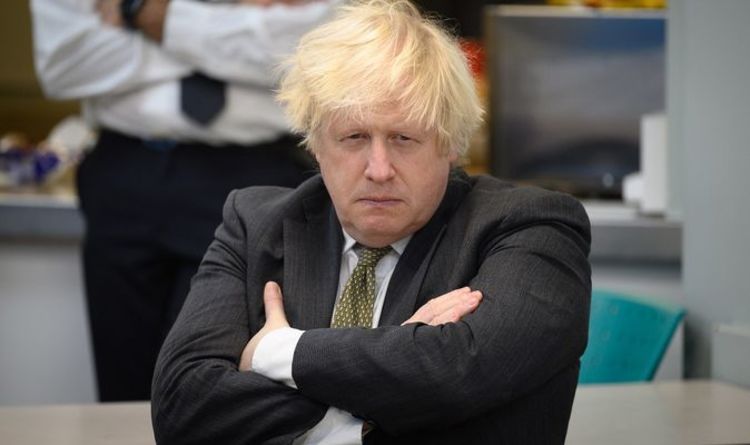Brexit warning as Amsterdam retains share-trading supremacy over London
Brexit: NI Protocol is 'damaging the union' says Kate Hoey
We use your sign-up to provide content in ways you’ve consented to and to improve our understanding of you. This may include adverts from us and 3rd parties based on our understanding. You can unsubscribe at any time. More info
In January last year, Amsterdam overtook London as Europe’s largest share trading centre. Following Britain’s departure from the European Union, euro-denominated share trading by EU investors had to stop. Much of the trading moved to Amsterdam where the likes of pan-European Euronext, London Stock Exchange Group’s (LSEG) Turquoise and the post-Brexit operations of Cboe Global Market all are based.
Figures from Cboe Global Markets found the average daily trading in Amsterdam in December totalled 8.97 billion euros (£7.5billion) ahead of London’s 8.32 billion euros (£6.9billion).
Despite Amsterdam overtaking London after Brexit, the UK capital managed to nudge back ahead in June.
A deal with Switzerland to allow Swiss share trading to resume in London helped it regain its lost ground.
However, it was not enough to secure the top spot for long as other initiatives failed to gain traction.


In August, Britain made it easier to list special purpose acquisition companies or SPACS but by November just one had listed.
Euronext said it had 22 new SPAC listings, accounting for around half of all those coming to the market in Europe throughout 2021.
Britain’s finance ministry has been urged from the financial sector to accelerate efforts to buttress UK capital market competitiveness.
Catherine McGuinness, policy chief for the City of London, home to the financial district, warned: “It’s not a given that people will want to come to London.”

Last month, the Financial Conduct Authority introduced more flexible rules for listings on LSEG’s premium segment in a bid to lure more tech companies.
LSEG said there were 122 companies listed on its exchange in 2021, raising more than £16billion.
Euronext, whose exchanges in Europe include Amsterdam, said it also had a record year with 212 new listings raising more than £21billion.
In March last year, Frank Eich, the former adviser to the Bank of England, said London should not be written off.
DON’T MISS
Pensioners sent urgent warning as UK energy crisis erupts [INSIGHT]
Stealth tax raid to drag 1.2million people into higher band [REVEAL]
‘Sack them!’ Britons furious as Border Force threatens STRIKE [COMMENT]

He said no other financial centre offers the same “breadth and depth of specialist knowledge and skills”.
Mr Eich said: “Despite Brexit, London remains one of the most important global financial centres.”
He said while the British capital lacks the large US market, London is “more diverse” and more “intentionally focussed”.
Writing for Germany’s RedaktionsNetzwerk Deutschland, Mr Eich continued: “In return, London is probably more diverse – for example, a leader in the Islamic financial world – and more intentionally focussed.”

After Brexit, some institutes moved employees from London to EU cities including Paris, Dublin and Frankfurt.
Ahead of the Brexit trade deal, Seema Shah, chief strategist of Principal Global Investors, warned being out of the Single Market would see jobs, people and capital “trickle” from the UK.
She said: “Being excluded from the world’s largest single market area will see jobs, people and capital flows trickle away from the UK, in search of destinations which instead embrace globalisation.”
Source: Read Full Article

